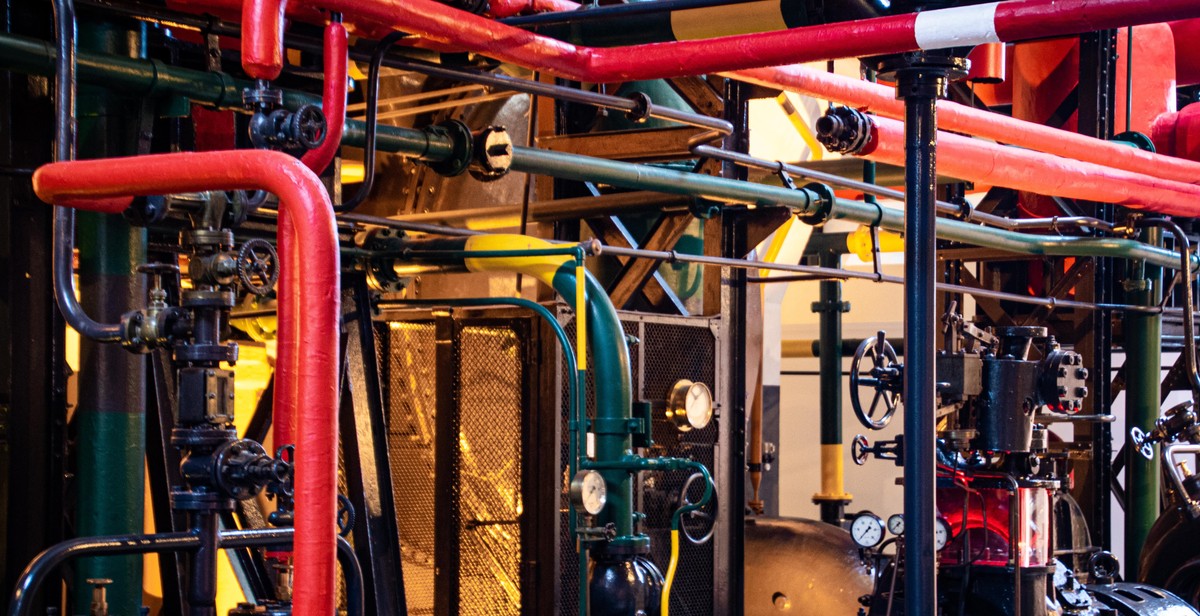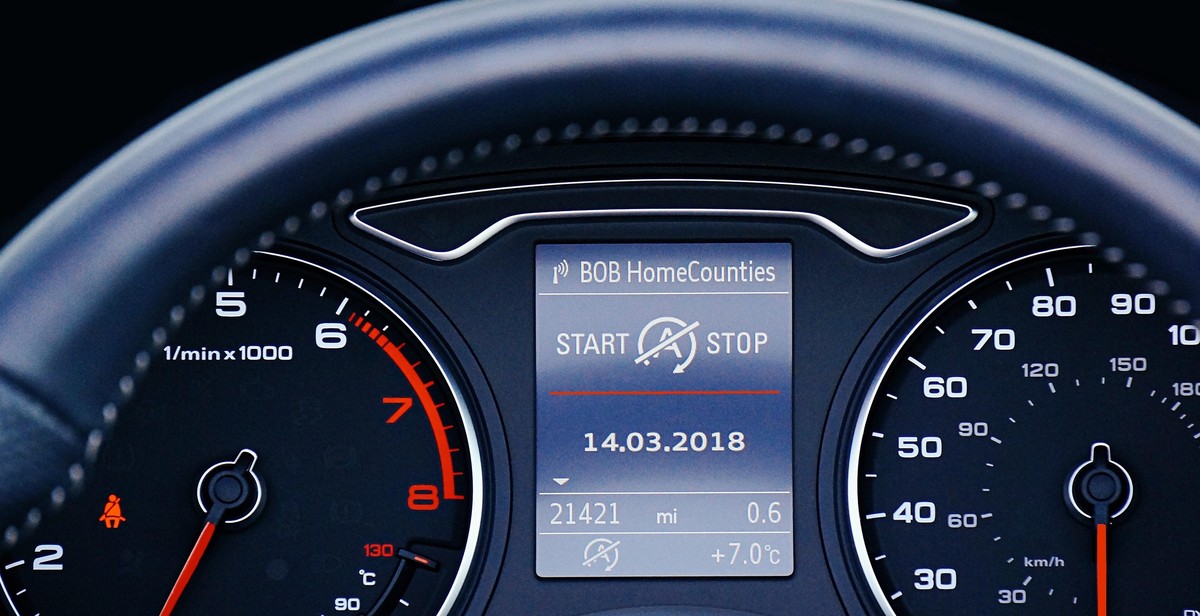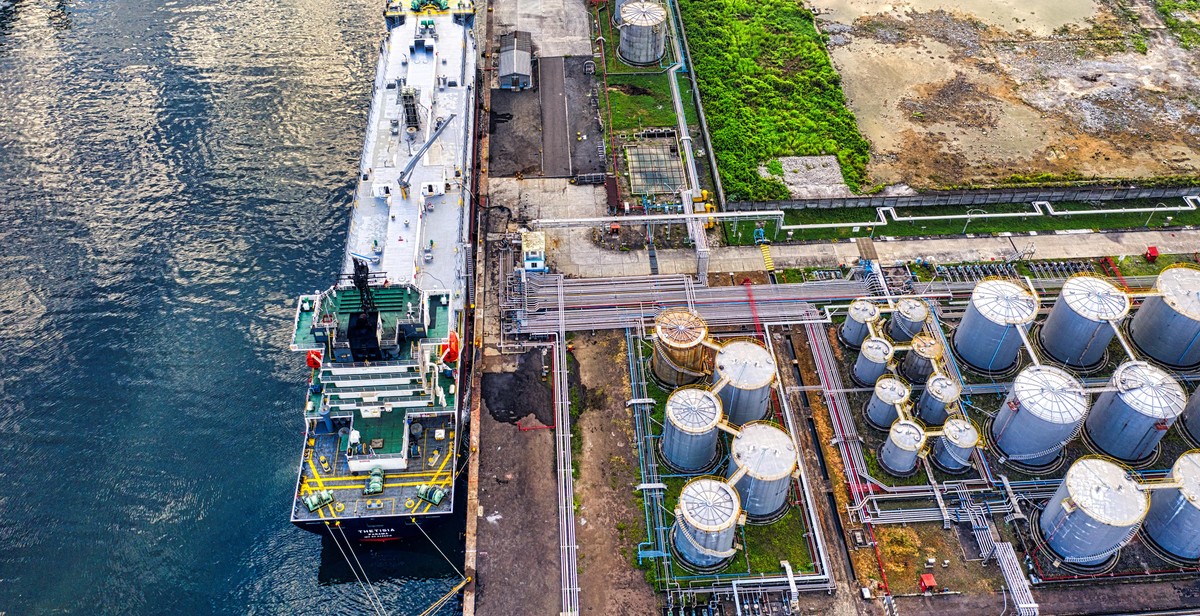Introduction
As the world becomes more conscious of the environmental impact of traditional fossil fuels, the demand for alternative fuels is on the rise. Alternative fuels are non-conventional sources of energy that can be used as a substitute for gasoline or diesel in passenger cars. These fuels are typically derived from renewable sources and are considered to be more sustainable and eco-friendly.
In this article, we will provide a detailed cost breakdown of alternative fuels for passenger cars, exploring the various options available in the market today. By understanding the cost implications of these alternative fuels, consumers can make informed decisions when it comes to choosing the most economical and environmentally friendly fuel for their vehicles.
Types of Alternative Fuels
There are several types of alternative fuels that are commonly used in passenger cars. These include:
- Electricity: Electric vehicles (EVs) are powered by electricity stored in rechargeable batteries. They are known for their zero tailpipe emissions and low operating costs.
- Biofuels: Biofuels are derived from renewable sources such as plant and animal matter. Ethanol, derived from corn or sugarcane, and biodiesel, made from vegetable oils or animal fats, are common examples.
- Hydrogen: Hydrogen fuel cells convert hydrogen gas into electricity, producing only water vapor as a byproduct. Hydrogen fuel cell vehicles are still in the early stages of development.
- Natural Gas: Natural gas can be compressed (CNG) or liquefied (LNG) for use in passenger cars. It is a cleaner-burning fuel compared to gasoline or diesel.
Cost Breakdown of Alternative Fuels
To better understand the cost implications of using alternative fuels, we will analyze various factors such as fuel prices, vehicle efficiency, maintenance costs, and government incentives. By considering these factors, consumers can assess the long-term financial viability of using alternative fuels for their passenger cars.
In addition to the direct cost of fuel, it is important to consider the overall cost of ownership, including the purchase price of the vehicle, maintenance and repair costs, and potential savings in terms of tax credits or rebates offered by governments to promote the use of alternative fuels.
Furthermore, we will explore the availability and accessibility of alternative fueling stations, as this can significantly impact the convenience and practicality of using alternative fuels in everyday life.
In conclusion, this article aims to provide a comprehensive breakdown of the costs associated with alternative fuels for passenger cars. By understanding the financial implications and benefits of each alternative fuel option, consumers can make informed decisions that align with their budget, environmental values, and long-term sustainability goals.

Section 1: Gasoline
Gasoline has been the dominant fuel for passenger cars for decades. It is readily available at gas stations across the world and offers a convenient and efficient way to power vehicles. However, the cost of gasoline can vary depending on several factors.
1. Price per gallon
The price of gasoline per gallon is influenced by various factors such as crude oil prices, taxes, and distribution costs. Crude oil prices are determined by global supply and demand dynamics, geopolitical events, and economic factors. Taxes imposed by governments also contribute to the final price per gallon. Distribution costs include refining, transportation, and marketing expenses.
2. Fuel efficiency
Fuel efficiency, measured in miles per gallon (MPG), plays a significant role in the cost of gasoline for a passenger car. Vehicles with higher MPG ratings consume less fuel per mile traveled, thereby reducing the overall cost of gasoline. Factors affecting fuel efficiency include vehicle weight, aerodynamics, engine technology, and driving habits.
3. Vehicle type
The type of vehicle also affects the cost of gasoline. Smaller, lighter vehicles generally have better fuel efficiency and consume less gasoline. On the other hand, larger vehicles such as SUVs and trucks tend to have lower MPG ratings and require more frequent refueling, resulting in higher fuel costs.
4. Regional variations
Gasoline prices can vary significantly depending on the region. Factors such as proximity to refineries, transportation costs, taxes, and local market conditions contribute to regional price variations. Urban areas and remote regions often experience higher gasoline prices compared to suburban or rural areas.
5. Maintenance and repairs
Regular maintenance and repairs are necessary to keep a vehicle running efficiently and to avoid potential fuel consumption issues. Neglecting maintenance can lead to decreased fuel efficiency and increased gasoline costs over time. It is important to follow the manufacturer’s recommended maintenance schedule and address any mechanical issues promptly.
6. Environmental impact
While not directly related to cost, the environmental impact of gasoline should be considered. Gasoline combustion contributes to air pollution and greenhouse gas emissions, which have adverse effects on the environment and human health. The long-term costs associated with these environmental impacts should be factored into the overall cost assessment of gasoline.
In conclusion, the cost of gasoline for passenger cars is influenced by factors such as price per gallon, fuel efficiency, vehicle type, regional variations, maintenance and repairs, and environmental impact. Considering these factors can help individuals make informed decisions regarding their choice of fuel and vehicle.

Diesel
Diesel fuel has long been a popular choice for passenger cars due to its high energy density and efficiency. However, it is important to consider the cost breakdown of diesel fuel when evaluating its overall affordability.
1. Fuel Cost
The cost of diesel fuel can vary depending on factors such as location, taxes, and market demand. On average, diesel fuel tends to be more expensive than gasoline. According to the U.S. Energy Information Administration, as of [date], the average price of diesel fuel in the United States was [price per gallon]. It is important to note that fuel prices can fluctuate over time.
2. Maintenance and Repair
Diesel engines generally require more frequent maintenance compared to gasoline engines. This is due to the higher compression ratios and different combustion processes involved in diesel engines. Routine maintenance tasks such as oil changes, filter replacements, and fuel system maintenance can contribute to the overall cost of owning a diesel vehicle. Additionally, repairs specific to diesel engines, such as injector replacements or turbocharger repairs, can be more expensive than their gasoline counterparts.
3. Emissions Compliance
Diesel vehicles are subject to emissions regulations that vary by country and region. Compliance with these regulations may require additional equipment or modifications to the vehicle, which can increase the upfront and ongoing costs of owning a diesel vehicle. Additionally, diesel vehicles often require periodic emissions testing and potential fees associated with non-compliance.
4. Resale Value
Historically, diesel vehicles have had higher resale values compared to gasoline vehicles. However, as the demand for electric and hybrid vehicles increases, the resale value of diesel vehicles may decline. It is important to consider the potential future resale value of a diesel vehicle when evaluating its overall cost.
5. Government Incentives
In some regions, there may be government incentives or tax credits available for purchasing a diesel vehicle. These incentives can help offset the initial cost of a diesel vehicle and make it more affordable in the long run. It is important to research and consider any available incentives when evaluating the cost of owning a diesel vehicle.
Overall, while diesel fuel may offer higher energy efficiency and lower fuel consumption, it is important to consider the full cost breakdown of owning and operating a diesel vehicle. Factors such as fuel costs, maintenance and repair expenses, emissions compliance, resale value, and government incentives all contribute to the overall affordability of diesel as an alternative fuel for passenger cars.

Section 3: Electric
Cost Breakdown of Electric Vehicles
Electric vehicles (EVs) have gained popularity in recent years due to their environmental benefits and potential cost savings. However, it is important to understand the cost breakdown of EVs to make an informed decision.
1. Vehicle Purchase Price:
One of the main factors affecting the cost of EVs is the purchase price. Generally, EVs tend to have a higher upfront cost compared to conventional gasoline-powered vehicles. However, with advancements in technology and increasing competition, the cost of EVs is gradually decreasing.
2. Battery Cost:
The most significant cost component of an EV is the battery. The battery cost can vary depending on the size and capacity of the battery pack. As battery technology improves and economies of scale are achieved, the cost of batteries is expected to decline further.
3. Charging Infrastructure:
Investing in a home charging station or using public charging stations can incur additional costs. However, compared to the cost of gasoline or diesel fuel, charging an EV is generally more cost-effective.
4. Maintenance and Repairs:
EVs have fewer moving parts compared to internal combustion engine vehicles, resulting in lower maintenance and repair costs. Additionally, EVs do not require oil changes and have longer brake life due to regenerative braking.
5. Government Incentives:
Many governments offer incentives and subsidies to promote the adoption of EVs. These incentives can significantly reduce the upfront cost of purchasing an EV and make them more affordable for consumers.
6. Fuel and Electricity Costs:
EVs have significantly lower fuel costs compared to gasoline-powered vehicles. The cost of electricity is generally lower than the cost of gasoline or diesel fuel, resulting in potential long-term cost savings.
Overall, while EVs may have a higher upfront cost, the long-term cost savings in terms of fuel and maintenance can make them a financially viable option. Additionally, government incentives and the decreasing cost of EV technology contribute to making EVs more affordable for consumers.

Section 4: Natural Gas
Natural gas is another alternative fuel option for passenger cars that offers several benefits. It is a cleaner-burning fuel compared to gasoline and diesel, emitting lower levels of harmful pollutants such as carbon dioxide (CO2), nitrogen oxides (NOx), and particulate matter (PM). Additionally, natural gas is abundant in many regions, making it a cost-effective fuel choice for consumers.
Cost Breakdown
The cost breakdown of natural gas for passenger cars includes several components:
- Vehicle Conversion: In order to use natural gas as a fuel, gasoline-powered vehicles need to be converted into compressed natural gas (CNG) vehicles. The cost of this conversion can range from $1,000 to $5,000, depending on the vehicle type and the complexity of the conversion process.
- Fuel Storage and Delivery: CNG vehicles require special fuel storage tanks that can withstand high pressures. The cost of these tanks ranges from $1,000 to $3,000. Additionally, CNG filling stations need to be available in the area for convenient refueling.
- Fuel Costs: The cost of natural gas varies depending on the region and the current market conditions. On average, the cost of natural gas is significantly lower than gasoline or diesel fuel.
- Maintenance: Natural gas vehicles generally require less maintenance compared to gasoline or diesel vehicles. However, regular inspections and maintenance of the CNG system are necessary to ensure its proper functioning. The cost of maintenance is comparable to that of conventional vehicles.
It is important to note that the availability of natural gas refueling infrastructure may vary depending on the location. In some areas, natural gas filling stations may be limited, which can affect the convenience and accessibility of this fuel option.
Despite the initial conversion costs, natural gas can provide long-term cost savings for consumers due to its lower fuel costs. Additionally, the environmental benefits of natural gas make it a desirable option for those seeking a cleaner and more sustainable fuel alternative.

Section 5: Hydrogen
Hydrogen is considered a promising alternative fuel for passenger cars due to its high energy density and zero emissions. However, the cost breakdown of hydrogen production, distribution, and infrastructure development needs to be carefully analyzed to understand its viability on a large scale.
1. Production Cost
The cost of producing hydrogen is a crucial factor in determining its overall feasibility. Currently, the most common method of hydrogen production is through steam methane reforming (SMR), which involves extracting hydrogen from natural gas. This process accounts for approximately 75% of hydrogen production worldwide.
The production cost of hydrogen through SMR is highly dependent on the price of natural gas. Additionally, the carbon emissions associated with SMR need to be considered, as they impact the sustainability of hydrogen as a fuel. Other methods of hydrogen production, such as electrolysis and biomass gasification, are being explored to reduce carbon emissions and diversify the sources of hydrogen.
2. Distribution and Infrastructure Cost
Hydrogen needs to be transported and stored in a safe and efficient manner, which requires the development of a robust distribution network and infrastructure. The cost of building hydrogen pipelines, storage facilities, and refueling stations can be significant.
Moreover, the limited availability of hydrogen refueling stations is a major challenge for widespread adoption of hydrogen-powered vehicles. The cost of establishing a comprehensive refueling infrastructure is a significant barrier that needs to be addressed to make hydrogen a viable alternative fuel.
3. Vehicle Cost
Hydrogen fuel cell vehicles (FCVs) are currently more expensive than their gasoline or electric counterparts. The high cost is mainly attributed to the complex and expensive fuel cell system, which includes the stack, hydrogen storage tanks, and power electronics.
However, as the technology matures and economies of scale are realized, the cost of FCVs is expected to decrease. Additionally, government incentives and subsidies can play a crucial role in reducing the upfront cost of FCVs and promoting their adoption.
4. Fueling Cost
The cost of hydrogen fuel is another important aspect to consider. Currently, hydrogen fuel is more expensive than gasoline or electricity on a per-mile basis. However, as the production and distribution infrastructure improves and economies of scale are achieved, the cost of hydrogen fuel is expected to become more competitive.
It is worth noting that the cost of hydrogen fuel can vary regionally, depending on factors such as the availability of hydrogen production facilities, transportation costs, and taxes or subsidies imposed by local governments.
Conclusion
In conclusion, hydrogen as an alternative fuel for passenger cars has the potential to offer zero emissions and high energy density. However, the cost breakdown of hydrogen production, distribution, infrastructure development, vehicle cost, and fueling cost needs to be carefully analyzed to determine its overall feasibility and competitiveness in the market.

Section 6: Propane
Propane, also known as liquefied petroleum gas (LPG), is an alternative fuel that is gaining popularity for passenger cars due to its cost-effectiveness and environmental benefits. In this section, we will provide a detailed cost breakdown of using propane as a fuel for your vehicle.
1. Propane Conversion Kit
The first cost you will incur when considering propane as a fuel option is the installation of a propane conversion kit. This kit allows your car’s engine to run on propane instead of gasoline. The cost of a conversion kit can vary depending on the make and model of your vehicle, but it typically ranges from $1,000 to $3,000.
2. Propane Fuel
The cost of propane fuel is generally lower than gasoline or diesel. On average, propane is priced at around $2.50 per gallon, compared to gasoline which is typically around $3.00 per gallon. However, it’s important to note that the actual price of propane can vary depending on your location and the current market conditions.
3. Propane Refueling Infrastructure
While propane refueling stations are not as prevalent as gasoline stations, the infrastructure for propane refueling is steadily growing. The cost of setting up a propane refueling station at your home or workplace can range from $5,000 to $20,000, depending on the size and capacity of the station.
4. Maintenance and Repairs
When using propane as a fuel, your vehicle may require specific maintenance and repairs. Propane-powered engines may have different components and systems compared to traditional gasoline engines. It is recommended to consult with a certified propane vehicle technician for regular maintenance and any repairs that may be needed.
5. Government Incentives
Various government incentives and tax credits are available for propane vehicle owners. These incentives can help offset the initial conversion kit cost and promote the use of propane as an alternative fuel. It is advisable to check with your local and state authorities to see what incentives are available in your area.
Overall, propane is a cost-effective alternative fuel option for passenger cars. With a lower cost per gallon compared to gasoline, potential government incentives, and a growing refueling infrastructure, propane is becoming an attractive choice for environmentally conscious drivers.
Conclusion
After analyzing the detailed cost breakdown of alternative fuels for passenger cars, it is evident that electric vehicles (EVs) are the most cost-effective and environmentally friendly option. EVs offer lower fuel and maintenance costs compared to gasoline and diesel-powered vehicles, making them a financially viable choice in the long run.
One of the key advantages of EVs is the significantly lower cost of electricity compared to gasoline or diesel. Charging an EV at home is much cheaper than refueling at gas stations, resulting in substantial savings over time. Additionally, with the increasing availability of public charging infrastructure, the convenience of recharging EVs is rapidly improving.
Furthermore, EVs require less maintenance compared to vehicles with internal combustion engines. The absence of complex systems such as transmissions, oil changes, and exhaust systems significantly reduces maintenance and repair costs. This is a significant advantage that contributes to the overall cost-effectiveness of EV ownership.
In terms of environmental impact, EVs produce zero tailpipe emissions, making them the cleanest option among alternative fuels. This not only helps reduce air pollution but also contributes to mitigating climate change. As the electricity grid becomes greener with the adoption of renewable energy sources, the environmental benefits of EVs will only increase.
While the initial purchase cost of EVs may be higher compared to conventional vehicles, government incentives and decreasing battery costs are making EVs more accessible and affordable. As technology advances, the range and charging times of EVs are improving, addressing some of the concerns associated with electric mobility.
In conclusion, electric vehicles offer a compelling and cost-effective alternative to gasoline and diesel-powered cars. With lower fuel and maintenance costs, zero tailpipe emissions, and improving infrastructure, EVs are emerging as the future of passenger transportation. By choosing electric vehicles, individuals can not only save money but also contribute to a cleaner and more sustainable future.
